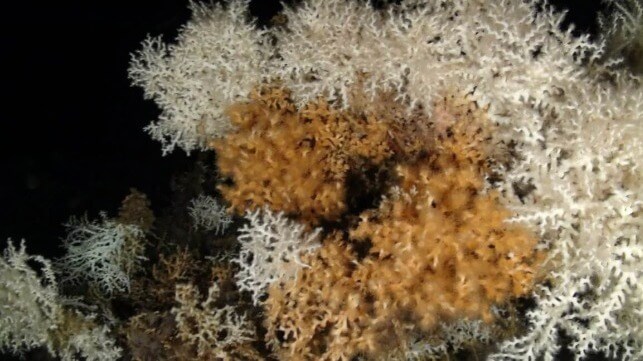20 Countries Agree to Restrict Bottom Fishing in Western Med

Years of lobbying for sustainable fishing in the Mediterranean Sea have finally started to pay off. Last week, more than 20 countries and the European Union adopted 34 measures geared towards conservation and sustainable use of marine living resources in the Mediterranean and the Black Sea.
This milestone was achieved during the forty-sixth session of the General Fisheries Commission for the Mediterranean (GFCM) of the Food and Agriculture Organization (FAO), which closed on Friday in Split, Croatia.
A notable decision from the gathering includes banning any kind of bottom fishing, such as destructive bottom trawling, in a 400-square-kilometer area around the deep-sea coral of Cabliers Bank.
The ban takes effect starting 2024. The measure is intended to prevent any deterioration of this biodiversity hotspot, located in the Alboran Sea between Spain and Morocco.
Cabliers Bank forms the westernmost part of the Mediterranean Sea. Here, the Mediterranean and the Atlantic interact, making it a melting pot of marine biodiversity. It is also a chokepoint for marine traffic, with 25 percent of global maritime traffic crossing the Alboran Sea annually.
For over a decade, researchers who have been investigating the Cabliers Bank have called for it to be designated as a Fisheries Restricted Area (FRA). The reasons for safeguarding this deep-sea coral reef include its potential role as a refuge for young fish, and the fact that it seems to be the only cold-water reef in the Mediterranean Sea that is still growing, according to research data by Oceana and Marine Science Institute-Spanish National Research Council (ICM- CSIC). Hence, Friday’s decision to restrict fishing around Cabliers Bank was seen by advocates as a timely step.
“The decision to protect the Cabliers reef from bottom trawling is a great win for marine ecosystems and is an example to be followed by Mediterranean countries to deliver their conservation targets and rebuild fish stocks. We particularly commend the leadership of the European Commission, Morocco and Algeria in this decision,” said Vera Coelho, deputy vice-president at Oceana Europe.

that matters most
Get the latest maritime news delivered to your inbox daily.
In addition, Mediterranean countries also agreed to adopt a system that will empower GFCM, allowing it to take action against members that persistently fail to adhere to gear restrictions or fail to stop trawlers from illegally fishing in no-trawl zones.
The Mediterranean Sea, especially its western part, constitutes one of the world’s most overfished areas, with more than 90 percent of stocks fished above the level considered sustainable.
